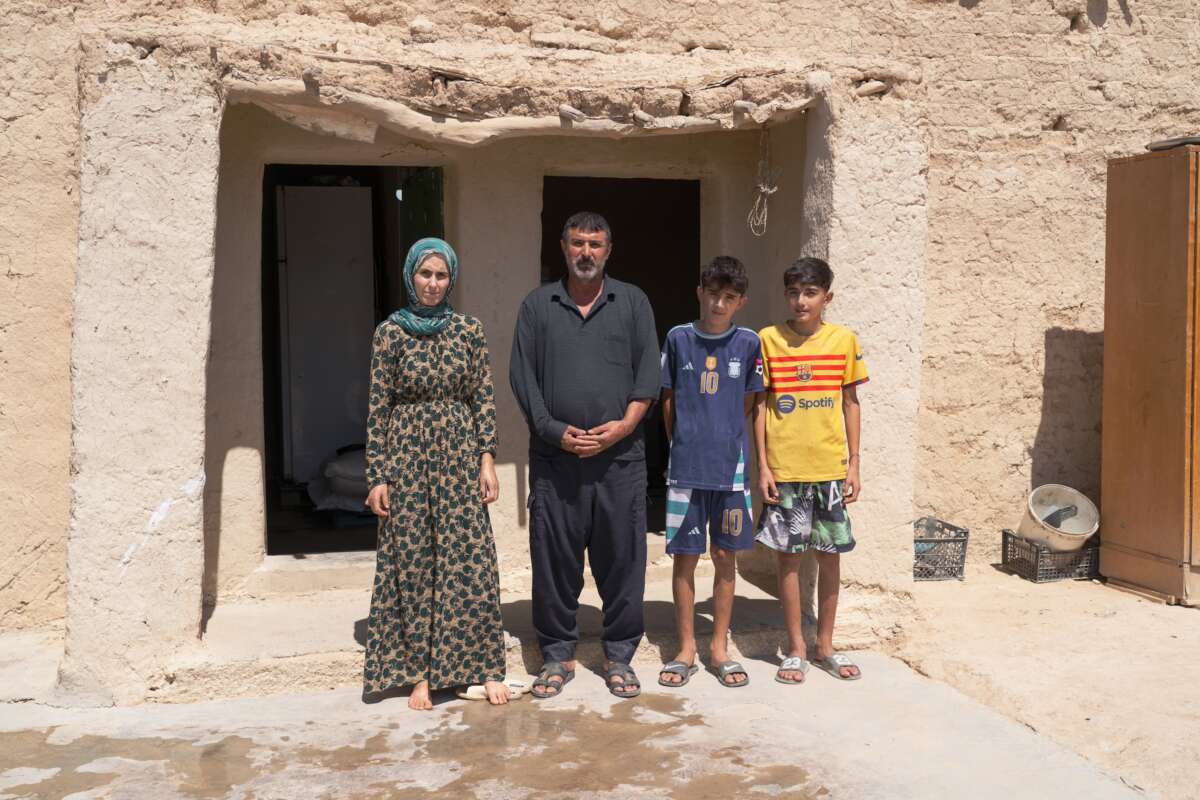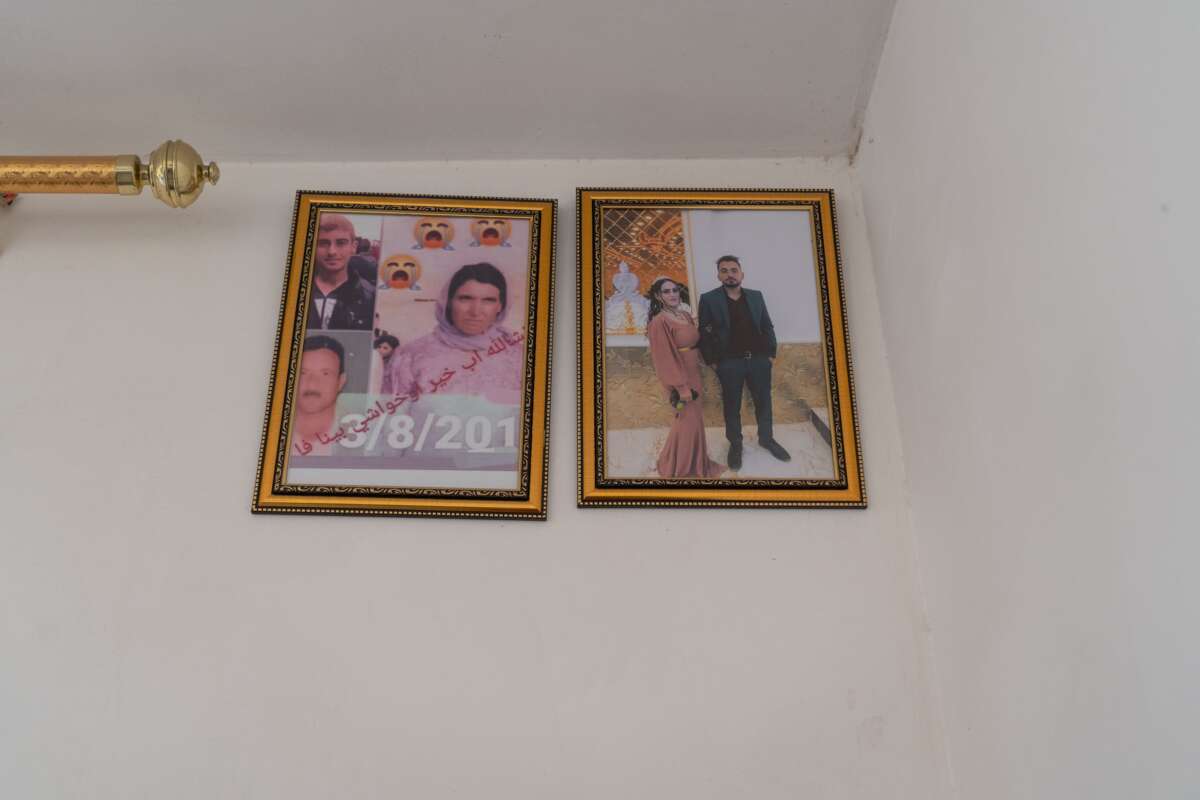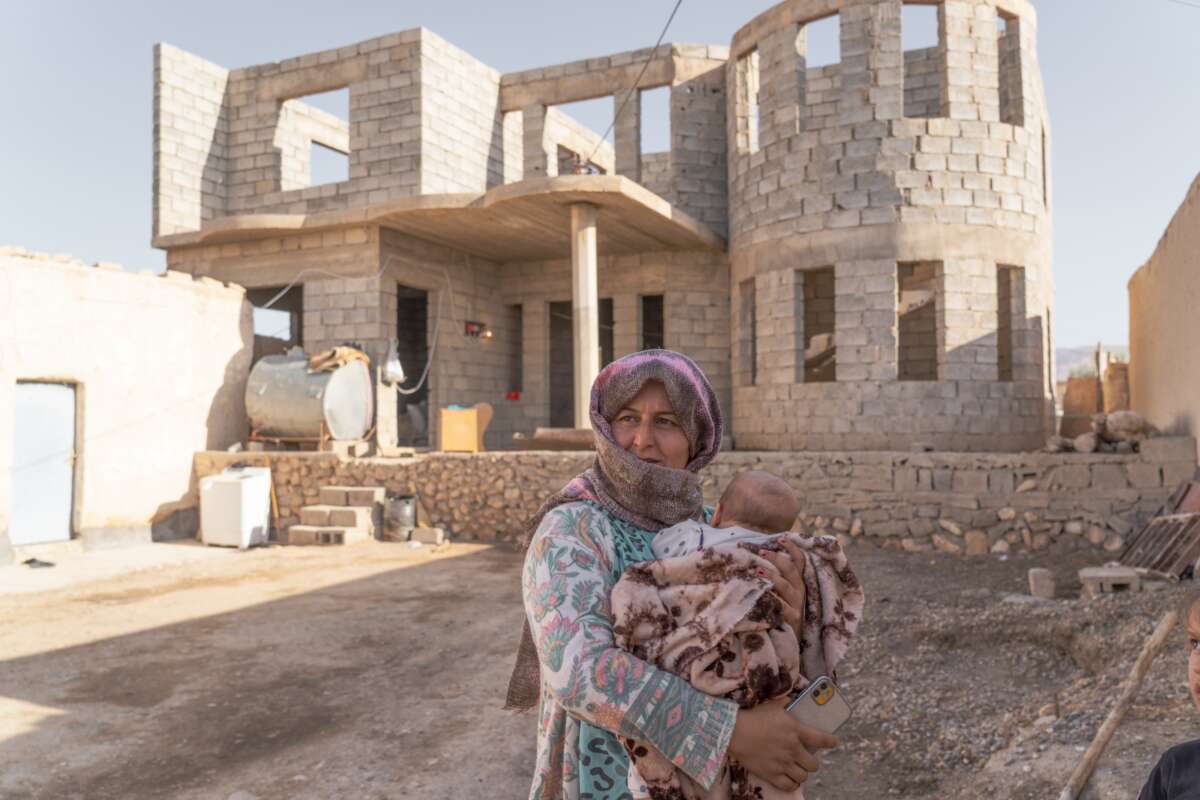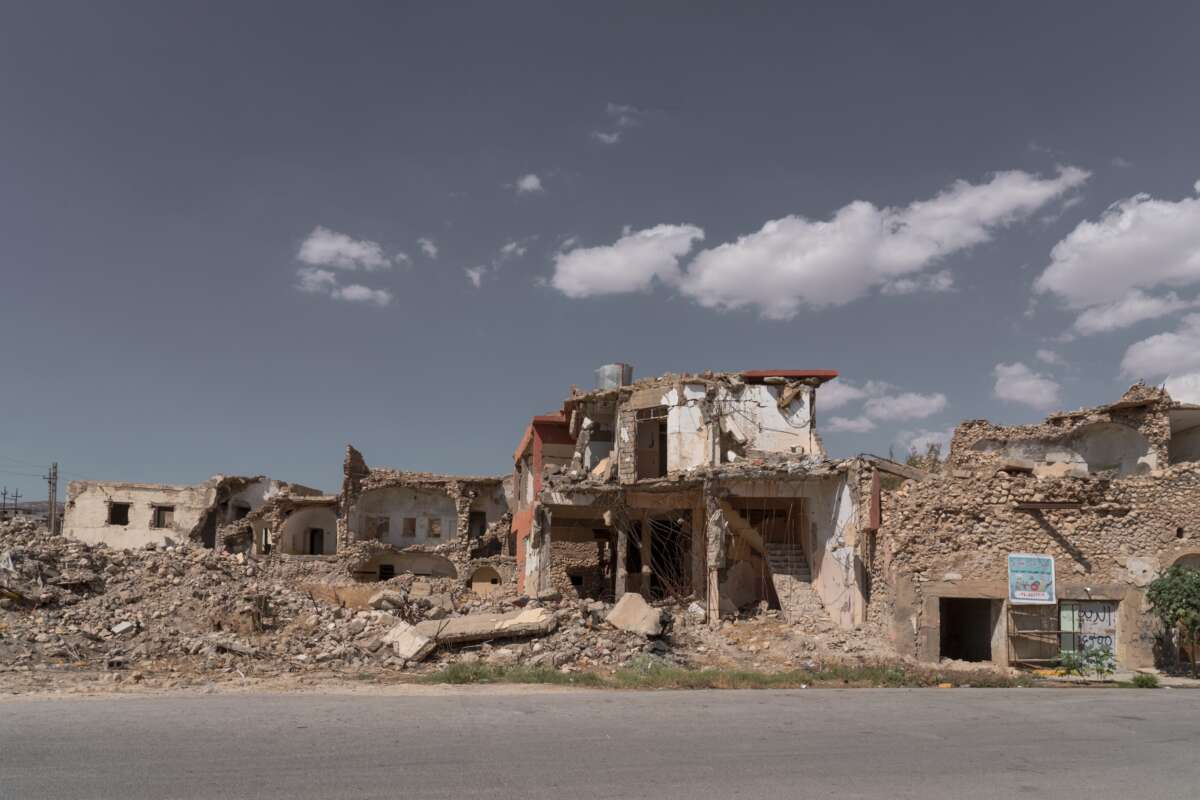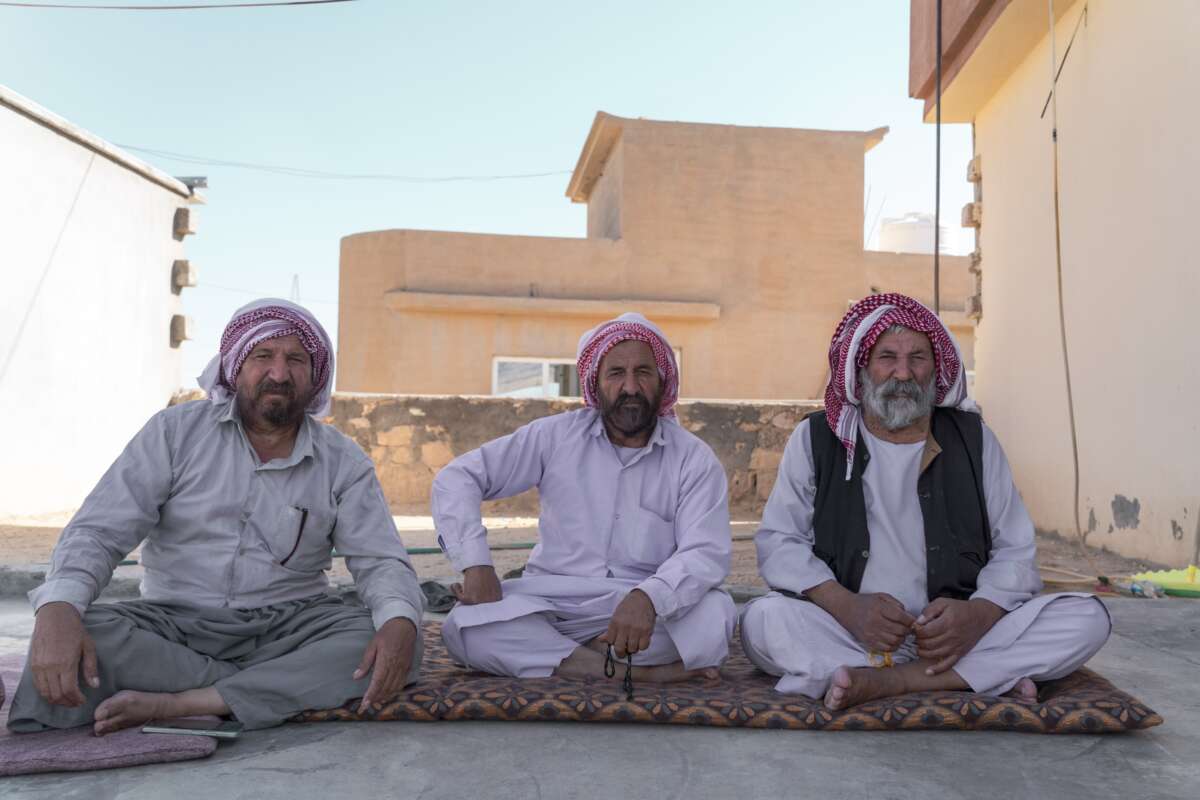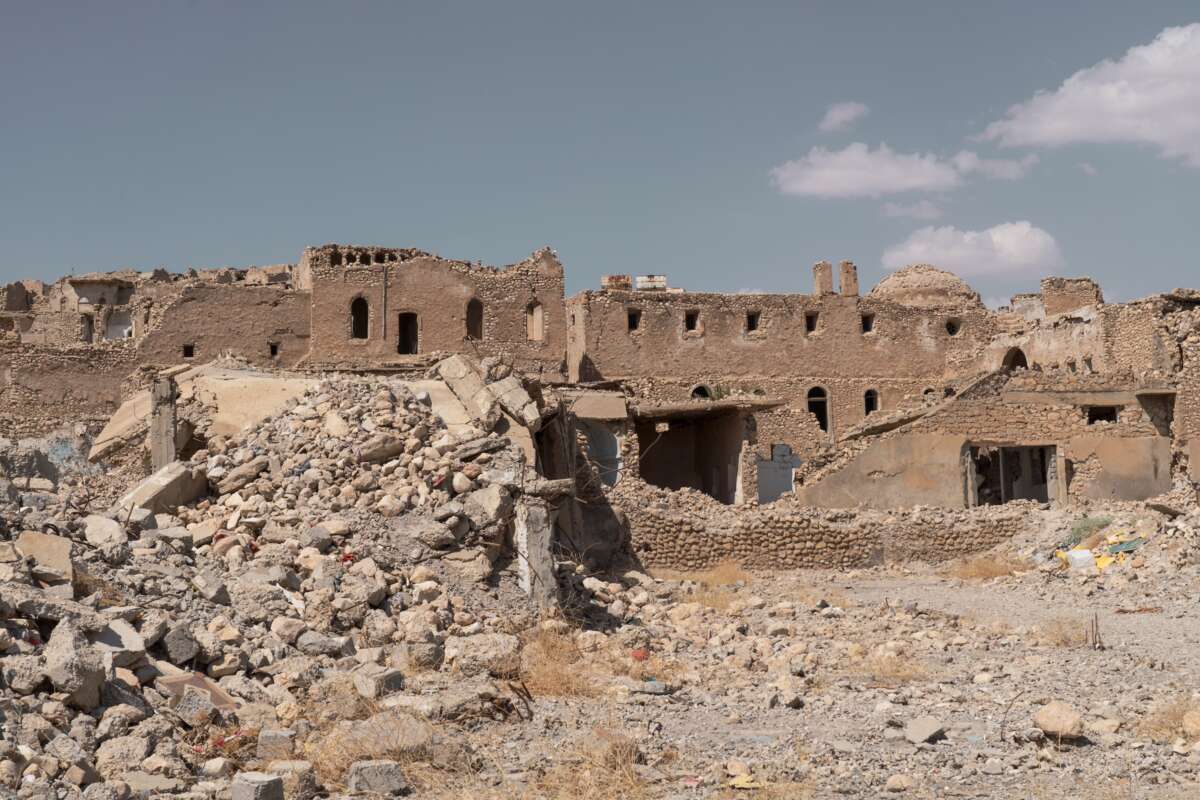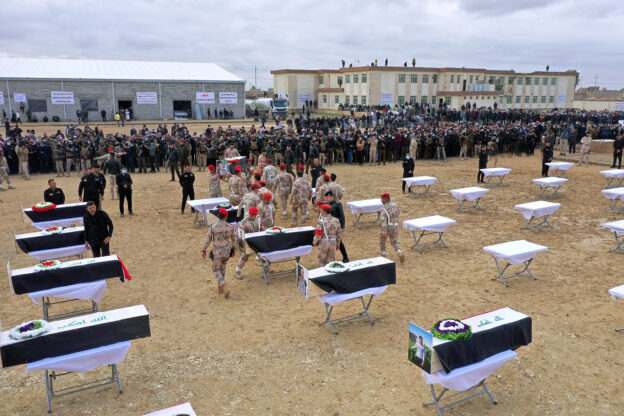Nine years ago the Yazidis genocide in Shengal
The 74th genocide arrived at the doors of the Yazidi community on 3 August 2014. The Islamic State killed, raped, kidnapped thousands in Shengal.
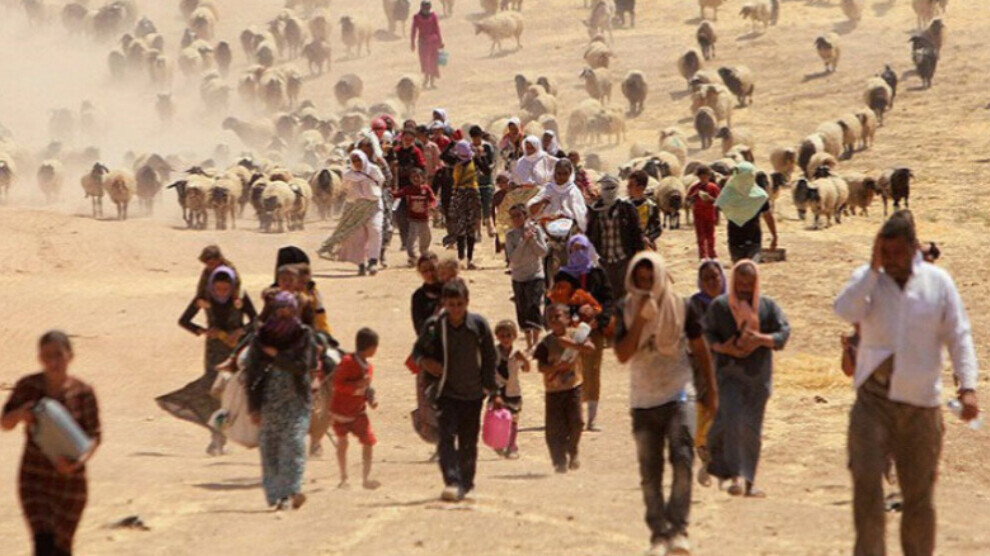
ANF
NEWS DESK
Thursday, 3 Aug 2023, 07:49
The Yazidi (Êzidî) Kurds, who have been living in the Mesopotamian region for thousands of years, have, throughout history, always been subjected to genocides and cruel betrayals and massacres and, on 3 August 2014, suffered the 74th genocide (or Ferman as they call it).
The Yazidi Kurds, who call the genocides perpetrated on them 'Ferman', the Kurdish term for decree, fell this time into the grip of almost total annihilation, captivity and enslavement by the ferocious ISIS gangs. But what was more suffocating for the Yazidis than the stranglehold of ISIS, was the betrayal that clad itself in a black garment.
A WELL-PREPARED GENOCIDE
When the ISIS gangs stood at the doors of Shengal, thousands of Peshmerga and asayish members of the Kurdistan Democratic Party (KDP) chaired by Masoud Barzani, who until that very moment controlled the Shengal town, made a quick getaway without shooting even one single bullet. As a result of the flight of the KDP Peshmerga, thousands of Yazidis were slaughtered by the ISIS gangs, thousands more were abducted, predominantly women and children, and sold at markets into slavery. Interestingly, shortly before the genocide took place, the KDP forces seized all the arms and weapons the Yazidis had at that time and took into custody three of the twelve guerrillas of the People's Defense Forces (HPG) and the Free Women's Troops (YJA-Star), who came to the rescue of the fleeing Yazidi people. All this made it indeed very clear, how well prepared and organized this extensive genocide actually was.
THE UN REPORT ON THE GENOCIDE
According to the investigations of the High Commissioner of Human Rights of the United Nations, which were made public in October 2014, the results of the attacks launched on 3 August 2014 were as follows:
- around 5000 Yazidi men were massacred
- around 100 Yazidi men were beheaded
- 7000 Yazidi girls and women were abducted and sold at slave markets
- A number of Yazidi girls and women were raped
- Some Yazidi women were forced to marry ISIS commanders
The estimated number of unknown cases was much higher than what was written in the report of the United Nations.
GENOCIDES AGAINST YAZIDIS THROUGHOUT HISTORY
The Yazidis, who follow one of the most ancient faiths of Mesopotamia, have suffered in the course of history 74 genocides. Most of those mass murders were perpetrated by the Ottoman empire. Because most of these genocides to wipe out the Yazidi community were ordered by the leading Ottoman Shahs via a fiat, the Kurdish Yazidis dubbed those genocides, therefore, with the Kurdish term for "decree". The first genocide was ordered in the year 1246 by the lord of Zengi of Mosul, Bedreddin Lulu, the last one by the Neo Ottoman AKP and its ally KDP and perpetrated by the ISIS gangs. In each and every genocide, the name of Islam was used.
Some of the genocides that were perpetrated in the course of history against the Yazidi community and mostly ordered by the Ottoman Shahs, are listed here:
* In 1246 the massacre of Lalesh, directed by the lord of Zengi of Mosul Bedreddin Lulu
* In the 16th century mass murder of the Yazidis in Shêxan was ordered by a fatwa of Shekhulislami Osmani Ebu Siud Efendi and by a decree given by Sultan Suleyman
* In 1638 the governor of Amed, Melek Ahmed Pasha had a massacre executed in Shengal
* In 1650 mass killing of the Yazidis was decreed by Murad IV, perpetrated by Governor of Van, Shemsi Pasha in Mosul
* In 1715 a massacre was committed in Shengal by the Governor of Baghdad, Hasan Pasha
* In 1733 mass murder of the Yazidis in Shexan by the Governor of Baghdad Ahmed Pasha
* In 1752 mass murder in Shengal by the Governor of Baghdad, Suleyman Pasha
* Between 1732-1733 Nadir Shah ordered a massacre of the Yazidis in between Surdash and Kirkuk
* In 1733 the mass murder of the Yazidis at the shore of Lake Zap by the Celiliyan
* In 1735 Nadir Shah commanded the mass killing of the Yazidis in Mahabad, Saldûz and Meraxi
* In 1742 Alî Takî Han, one of Nadir Shah's loyalists, committed a massacre of the Yazidi people in Saldûz
* In 1743 Nadir Shah perpetrated a mass killing of the Yazidi Kurds in Kirkuk, Hewler and Altunköprü
* In 1773 Nadir Shah ordered a massacre of Yazidis at the shore of Lake Zap
* In 1787 the Celiliyan committed a mass murder against the Yazidis in Shexan
* In 1798 Deputy Governor of Baghdad Abdulazaz Bin Abdullah Beg had a massacre against the Yazidis perpetrated in Shexan
* Between 1753 and 1800 Ottoman Shahs ordered the pillaging, imposition of heavy taxes, enslavements and genocides of the Yazidi Kurds (about six major attacks were conducted in Shengal, Shexan and Mosul)
* In 1809 Governor of Baghdad Suleyman Pasha ordered a mass killing of the Yazidis in Shengal
* In 1824 massacre against the Yazidis in Shengal ordered by the Governor of Baghdad Ali Pasha
* Between 1832-1834 mass killings were commanded by the Lord of Soran Muhammed Pasha
* In 1835 Governor of Mosul Muhammed Ince Bayraktar had a massacre perpetrated in Shengal
* In 1836 Reshid Pasha had a massacre committed in Shengal
* In 1837 Hafiz Pasha had a massacre committed in Shengal
* In 1844 mass killing of Yazidis took place in Botan
* In 1892 the Islamisation politics of Abdulhamit the 2nd on the Yazidi community led to mass murders of the Yazidis
For more detailed information, one is advised to read the book "Yazidis in the clutches of fatwas, genocides and massacres" written by Prof. Dr. Kadri Yildirim and the book titled "A people defying genocides, the Yazidis" by journalist Mazlum Özdemir.

THE MASSACRE OF 2007
One of the more recent mass killings against the Yazidi Kurds took place in 2007. On the 14th August 2007 attacks were carried out by four bomb laden trucks in the villages of Siba Shex Xidir and Til Izer of Shengal. As a result, 300 people were killed. No investigations were launched in this case whatsoever. It was reported that this massacre was perpetrated by a group of gangs called Ensar El Sune affiliated with Al-Qaeda, which tried at that time to get some foothold in Southern Kurdistan. However, many sources say that the Turkmen Front of Iraq (ITC) was involved in the attack, which was forged by the Turkish secret service in Southern Kurdistan.
The Yazidis called this attack until the 3rd August 2014 "the last decree".
SHENGAL’S STATUS BEFORE 3 AUGUST GENOCIDE
The Kurdish Yazidis were predominantly living in the Shexan district of Duhok, Shengal district of Mosul and the villages of surrounding districts. In 1975 under the Iraqi Ba'ath regime, the Yazidis were forcibly resettled. In each and every genocide they faced, the Yazidi people saved themselves from the protective arms of Mount Shengal. But in 1975 they were removed by force from the villages of the mountains and resettled in Khanasor, Til Izer, Sinune, Siba Shex Xidir, Kocho and Dugurê and around 15 other villages on the foothills of the mountain.
When, in 2003, the US intervened in Iraq and toppled the regime of Saddam Hussein, a new constitution was prepared for Iraq. According to article 140 of this constitution, Shengal was left as a so called "disputable area" between the government of Southern Kurdistan and the central government of Iraq. A referendum was planned for 2007 to be held in Shengal as well, but until today that referendum was never realised.
However, unlike the cities of Kirkuk, Jalawla, Khanaqin and Tuz Khurmatu, the KDP established its monocracy in Shengal. The city was allegedly "under the protection" of the Peshmergas and asayish of the KDP and the federal police of Iraq.
SHENGAL’S SITUATION PRIOR TO AUGUST 3 GENOCIDE
After imposing its absolute rule on Shengal in 2003, the KDP promoted backward traditions of society and profited until the end from the caste system of the Sheiks, through which it kept the Yazidi people under its control. The KDP even used the faith of the Yazidis for its own advantage and supported this sheikh system, keeping tabs on the entire Yazidi people.
One of the commanders of the Shengal Resistance Units (YBŞ) Tîrêj Şengal talked with the ANF about the latest genocide of the Yazidis and the system, which the KDP had established in Shengal, saying: "They made everyone who went to them into one of their Peshmerga and paid them a wage. They told them, go eat and drink and get your money, but do not think. They did not appreciate it when people were talking about things like honour, freedom and values. So the people stayed unorganised and uneducated until the end."
PRESSURES ON WOMEN IN THE YAZIDI SOCIETY
Member of the Yazidi Women's Freedom Movement (TAJÊ) Xoxê Dexîl talked about the Yazidi society before the outbreak of the genocide and drew attention to the violence and pressure the Yazidi women were subject to in society, saying: "The status of the women was very weak in the Yazidi society, almost not existent. To put it in other words, a woman was as good, as much as the pressures she was subject to and as much as she was silenced! But one must not let out the continuous resistance of women against this. Yet those struggles were mostly constricted to some private people. However, when we saw after the genocide the women from Rojava and those in the guerrillas, we started to organise ourselves with their help."
TOWARDS 3 AUGUST GENOCIDE
On the 10th of June 2014 when ISIS invaded Mosul, Shengal ran into danger more than any other district of Mosul. The Kurdish People's Leader Abdullah Öcalan issued many warnings for Shengal's protection. In the context of those foresights of Öcalan, the PKK sent a unit of 12 guerrillas to Mount Shengal. On the growing imminent threats that were hovering over Shengal, the leadership of the PKK got in contact with the KDP and called attention to the grave situation. The PKK made clear that it could send some of its forces to Shengal, but the KDP did not answer this call made by the PKK.
A FORCE OF 11000 WELL-EQUIPPED MEN WERE ON SITE
After invading Mosul, the ISIS gangs charged Tal Afar, a district of the Turkmen community in the immediate vicinity of Shengal. A great number of the Shia Turkmen people here fled to Shengal. The gangs were now very close to attacking Shengal next. However, instead of commencing the necessary preparations, the KDP suddenly began to seize the arms and weapons of the Yazidi people, telling them: "We will protect you". According to official statistics that were revealed afterwards, prior to the barbaric attacks of the ISIS gangs on Shengal, the number of the Peshmerga and asayish members of Southern Kurdistan and the Iraqi Federal Police, traffic police and armed units that were affiliated with some other political parties comprised altogether 11000 personnel positioned in Shengal and the surrounding villages.
“THEY WERE HERE FOR MONEY, AND FLED WHEN DANGER APPROACHED”
YBŞ Commander Tîrêj Şengal gave the following information about the military force in Shengal: "At that time, when the ISIS gangs took over all the areas around Shengal one after another, we still did not believe that we could be next. Because we were surrounded by a massive army of Peshmergas and even Iraqi soldiers. And we trusted them. They used to tell us: 'We will protect you'. But unfortunately, they fled when the attacks started. Only when we asked them why they ran away, did we understand that they did not consider this place their soil and had been conscripted for the "duty to defend" only for the money. As they saw the danger approaching, they fled as soon as they were ordered to do so, without even looking back once."
THEY SEIZED THE ARMS OF YAZIDI YOUTHS
Shengal Autonomous Council Deputy Co-chair Qehtan Xelîl recalled that the Peshmerga of the KDP seized all the weapons and arms of the young Yazidis shortly before the start of the genocide and stated: "On the crossing from Shengal to Tal Afar, the KDP had set up a checkpoint. When ISIS swept over ravaging, all the arms of the Yazidi youth were taken away from them here. They assured us with words like: 'We will protect you, don't worry, you don't need to take up arms'. And they seized all the weapons there. However, during the genocide they did not even shoot a bullet, they did not give one martyr and had not even one of their fingers bleed. They all ran away."

YPG: We will always stand with our Yazidi people
“In the event of an attack against our Yazidi people, we will take it as an attack directed against us and act accordingly. Our heroic martyrs entrusted us with the defence of Shengal,” said the YPG.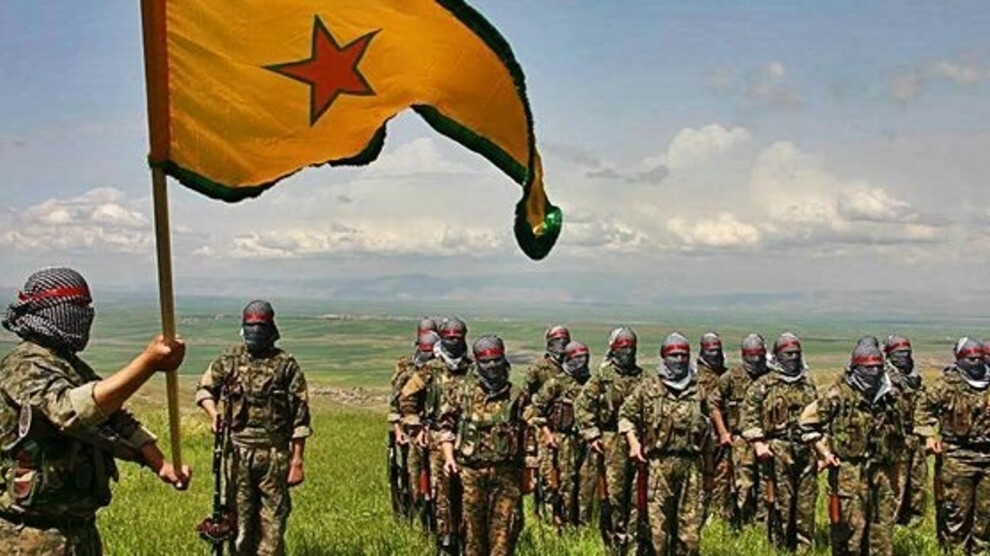 ANFNEWS DESKThursday, 3 Aug 2023, 16:34The General Command of People’s Defense Units (YPG) released a statement marking 3 August, the ninth anniversary of the beginning of the ISIS genocide against the Yazidi population of the Shengal (Sinjar) region of southern Kurdistan (northern Iraq) in 2014.Calling the Yazidi genocide one of the most tragic and traumatic massacres in human history, YPG stated: “The forces responsible for the Shengal region at the time, as well as all regional and international states remained blind, deaf and dumb about this genocide, which was a great shame not only for the region but the entire humanity. All world powers are responsible for defending the rights of the Yazidi community and supporting their freedom struggle to make sure that they are not subjected to similar massacres again.”Pointing to the heroic resistance put up by the HPG (People’s Defense Forces), YPG (People’s Defense Units) and YPJ (Women’s Defense Units) to defend Shengal, YPG noted that young women and men in Shengal took part in the resistance alongside the YPG-YPJ fighters and prevented a terrible genocide.The YPG stressed that the invading Turkish state seeks to complete the Yazidi genocide that ISIS left unfinished, calling on the international powers and states to intervene in the Turkish state that collaborates with ISIS and to call it to account.The YPG statement concluded: “We will always stand with our Yazidi people as we did in the past and do today. In the event of an attack against our Yazidi people, we will take it as an attack directed against us and act accordingly. Our heroic martyrs entrusted us with the defence of Shengal.”
ANFNEWS DESKThursday, 3 Aug 2023, 16:34The General Command of People’s Defense Units (YPG) released a statement marking 3 August, the ninth anniversary of the beginning of the ISIS genocide against the Yazidi population of the Shengal (Sinjar) region of southern Kurdistan (northern Iraq) in 2014.Calling the Yazidi genocide one of the most tragic and traumatic massacres in human history, YPG stated: “The forces responsible for the Shengal region at the time, as well as all regional and international states remained blind, deaf and dumb about this genocide, which was a great shame not only for the region but the entire humanity. All world powers are responsible for defending the rights of the Yazidi community and supporting their freedom struggle to make sure that they are not subjected to similar massacres again.”Pointing to the heroic resistance put up by the HPG (People’s Defense Forces), YPG (People’s Defense Units) and YPJ (Women’s Defense Units) to defend Shengal, YPG noted that young women and men in Shengal took part in the resistance alongside the YPG-YPJ fighters and prevented a terrible genocide.The YPG stressed that the invading Turkish state seeks to complete the Yazidi genocide that ISIS left unfinished, calling on the international powers and states to intervene in the Turkish state that collaborates with ISIS and to call it to account.The YPG statement concluded: “We will always stand with our Yazidi people as we did in the past and do today. In the event of an attack against our Yazidi people, we will take it as an attack directed against us and act accordingly. Our heroic martyrs entrusted us with the defence of Shengal.”
US STATE DEPT.
The 9th Anniversary of the Yezidi Genocide
PRESS STATEMENT
MATTHEW MILLER, DEPARTMENT SPOKESPERSON
AUGUST 3, 2023
Today we remember the victims and stand in solidarity with survivors of the Yezidi genocide perpetrated by ISIS terrorists. ISIS abducted and killed thousands of Yezidis, forcing boys to become child soldiers and selling women and girls into sexual slavery. The number of people killed remains unknown, and discoveries of mass graves continue. The scars of that experience are borne by Yezidis around the world to this day.
Our support for the Yezidi community is unwavering. As we reflect on this day, we continue to press for justice and accountability for victims and survivors and respect for the human rights of all Yezidis, including the freedom of religion or belief. We urge full implementation of the Yezidi Survivors’ Law, as well as the 2020 Sinjar Agreement, in consultation with the communities that call Sinjar home. Governance and security officials should reflect the diversity of the communities that they serve.
By pursuing justice and accountability, addressing the drivers of violence, and preventing genocide and other atrocities in the future, Iraq has the opportunity to embark on a new path that leads to greater peace, stability, and prosperity for all of its communities. With this approach, Iraq can serve as an example of mutual respect and coexistence for the region and the world. Yezidis are crucial in this effort. So while we keep alive the memory of the victims and recognize the survivors and their suffering, we also honor the strength, resilience, and determination of Yezidis.
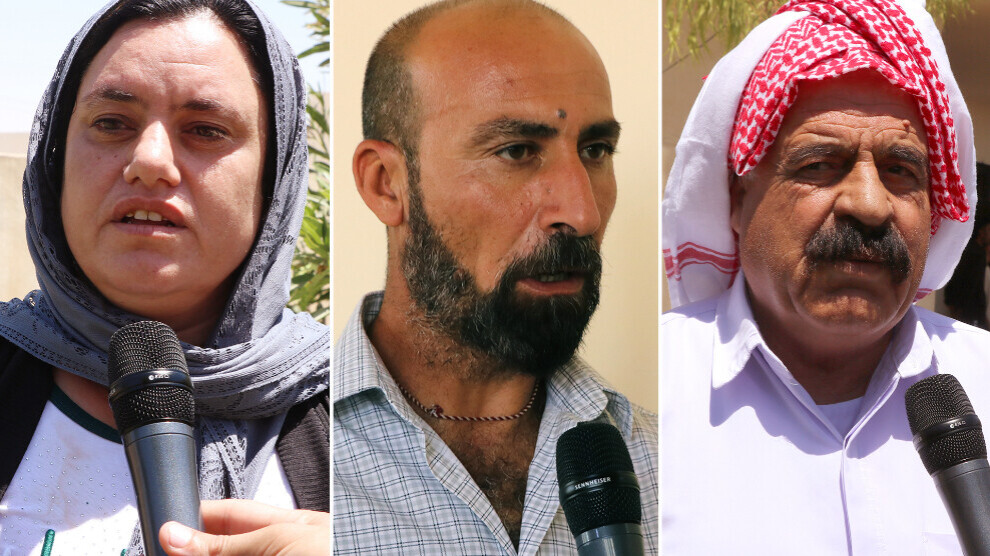










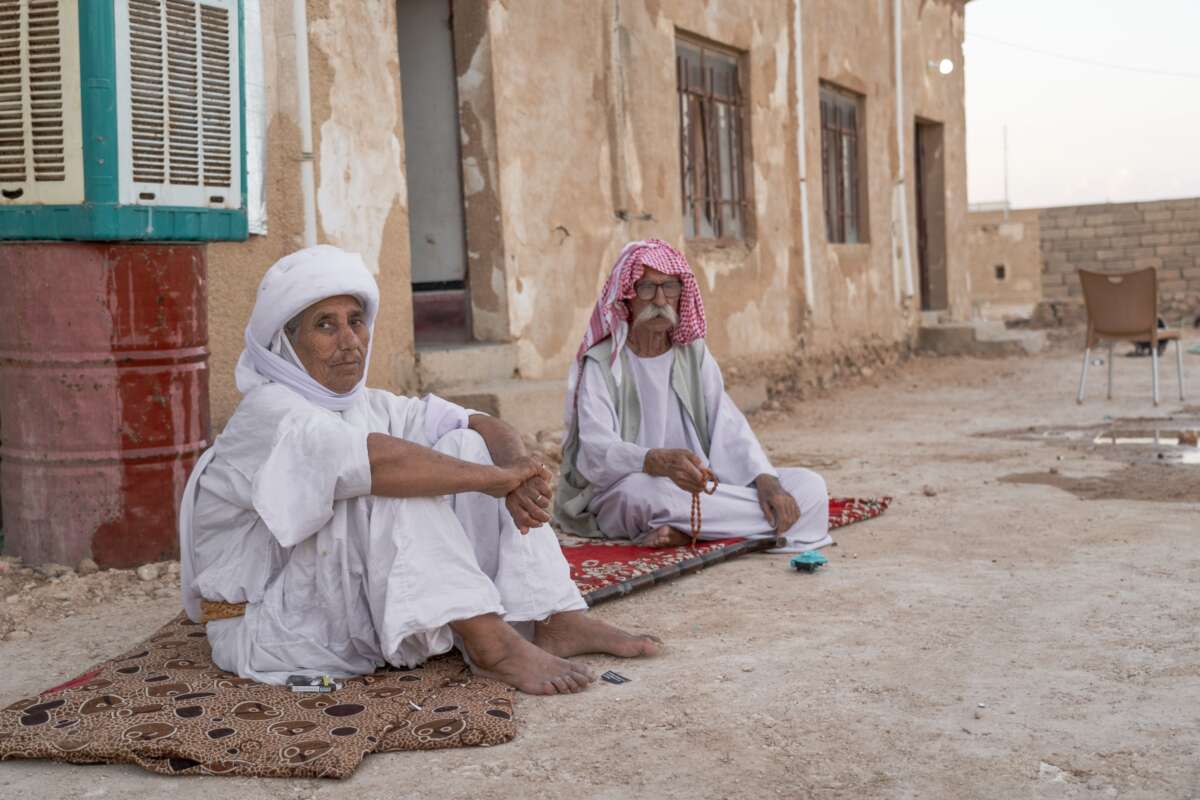
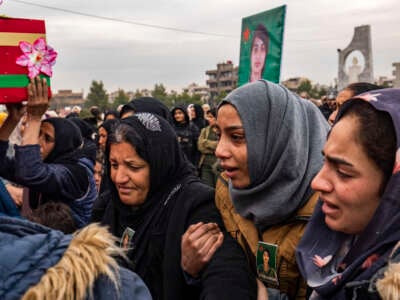
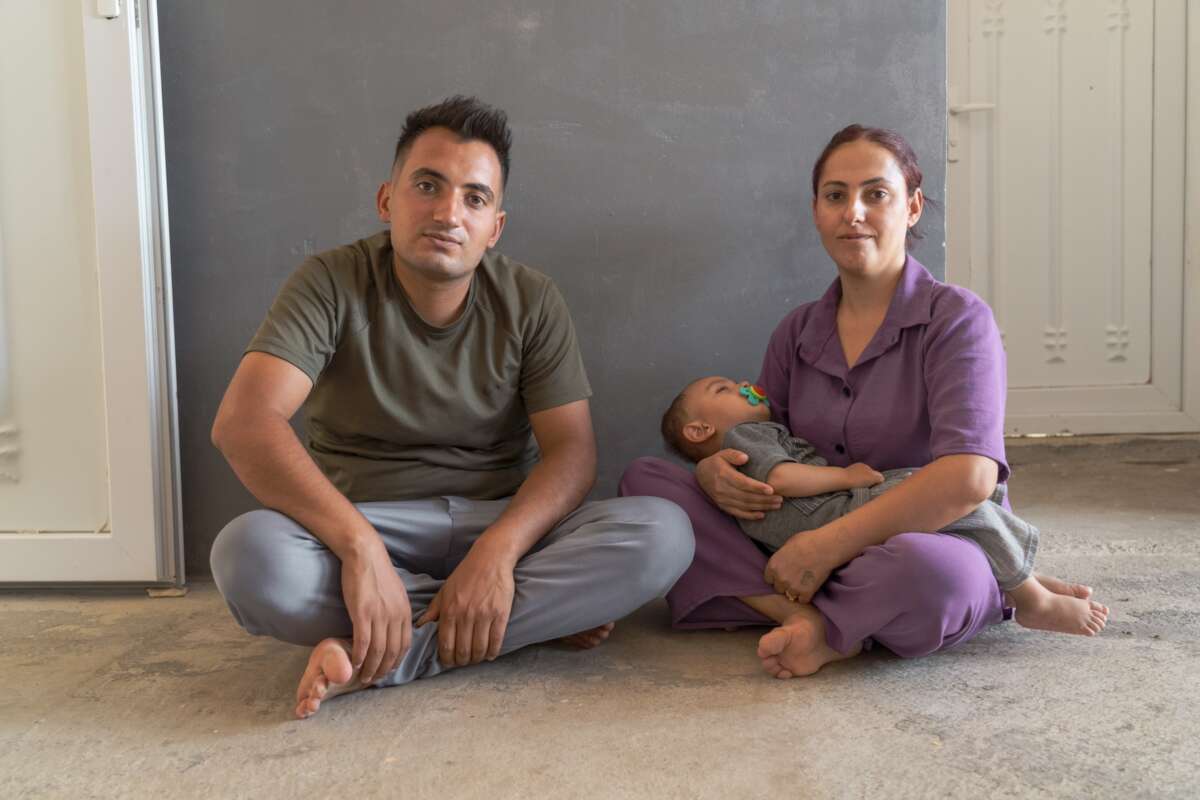 Fadil Murat Shamo sits with his wife and small child.Jaclynn Ashly
Fadil Murat Shamo sits with his wife and small child.Jaclynn Ashly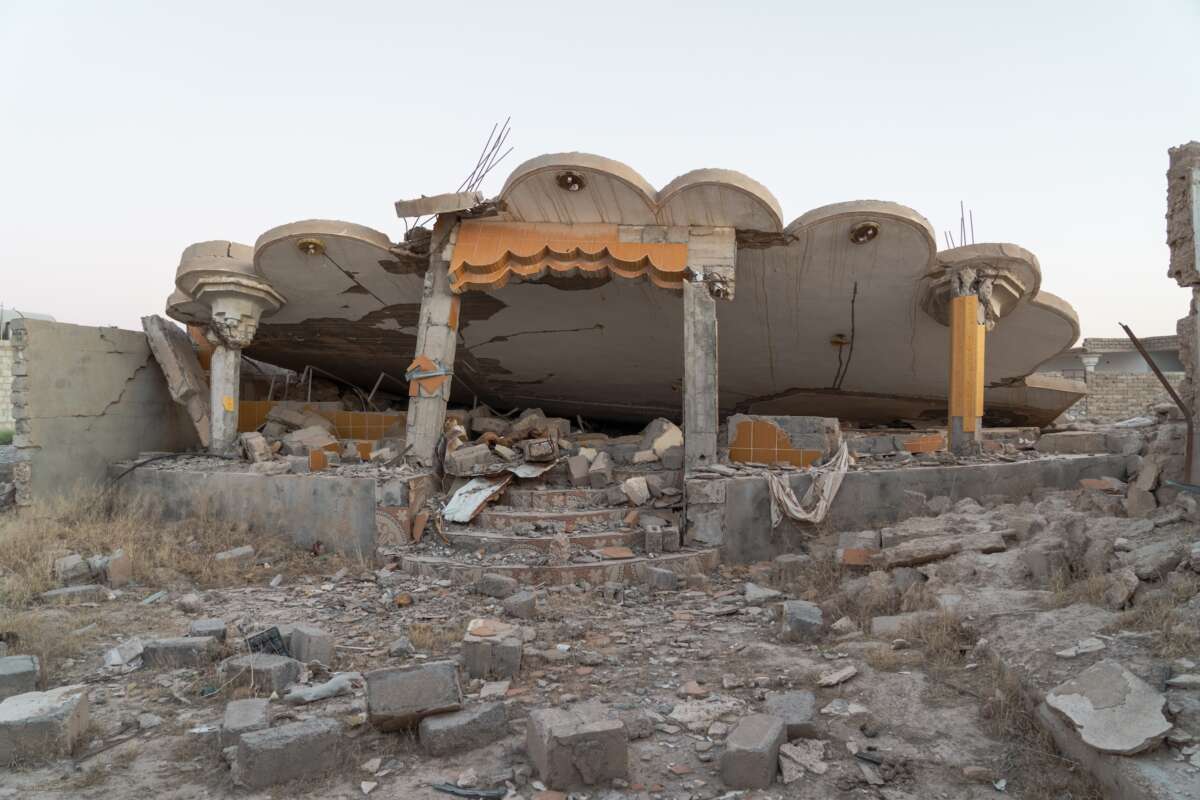
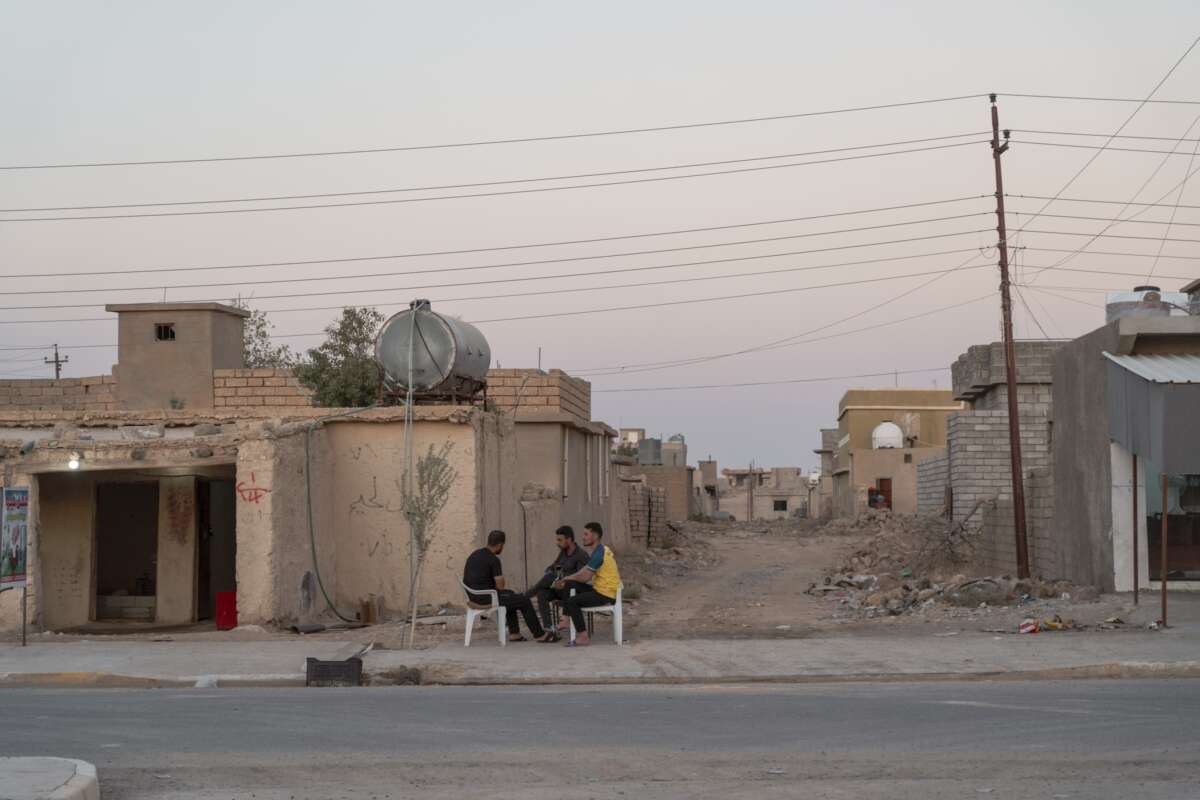 People sit among the partly destroyed buildings of a village in northern Sinjar, where Yazidi have recently begun to return.Jaclynn Ashly
People sit among the partly destroyed buildings of a village in northern Sinjar, where Yazidi have recently begun to return.Jaclynn Ashly